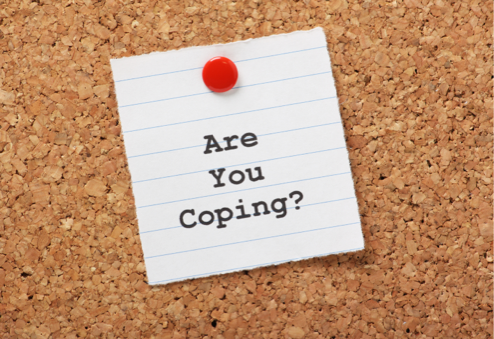If you know my story, you know that even though I had an open myomectomy, I still live with fibroids (blah). If you have not heard my story, click here to open a new tab and take a listen. Living with fibroids can be physically and emotionally challenging. While medical treatments focus on managing the physical symptoms, it’s equally crucial to address the emotional impact of this condition. Coping with fibroids involves adopting strategies that promote emotional well-being and self-care. In this blog post, we’ll explore practical techniques to help you navigate the emotional aspects of your fibroid journey. From managing stress to finding support, let’s empower ourselves as fibroid fighters.
Recognize and Validate Your Emotions
Fibroids can bring forth many emotions, such as frustration, sadness, anger, and anxiety. It’s important to acknowledge and validate these feelings. Give yourself permission to feel and process your emotions. There were days I could barely get out of bed. I was exhausted even though I had not physically done anything. It took me a long while to grant myself grace. Seek solace in knowing that you are not alone—many other women are going through similar experiences.

Practice Stress Management Techniques
Chronic stress can worsen fibroid symptoms and negatively impact your overall well-being. Try to incorporate stress management techniques into your daily routine to find balance and relaxation. Explore activities such as meditation, deep breathing exercises, yoga, or mindfulness practices. These practices can help calm your mind, reduce anxiety, and alleviate stress.
Prioritize Self-Care
Taking care of yourself is crucial when dealing with fibroids. Prioritize self-care activities that promote physical and emotional well-being. Engage in activities like reading, listening to music, taking long baths, or pursuing a hobby. Nourish your body with a healthy diet, exercise regularly, and ensure you get enough restful sleep. I really leaned into fitness during this time. I felt like most things were out of my control, but I could control my discipline. Lifting heavy stuff made me feel strong. Working out made me feel simply unstoppable and got me through a lot of slumps. Small acts of self-care can make a significant difference in how you feel.
Seek Support
Connecting with others who understand what you’re going through can be incredibly comforting. Seek support from family, friends, or join support groups for women with fibroids. Online communities and forums provide a safe space to share experiences, seek advice, and gain support from individuals who can relate to your journey. I found a really good Facebook group that pushed me and gave me hope. Remember, you don’t have to face fibroids alone.
Explore Therapeutic Techniques
Consider exploring therapeutic techniques to help process emotions and develop coping mechanisms. Cognitive-behavioral therapy (CBT) and counseling can be practical tools in managing anxiety, depression, and stress related to fibroids. A trained therapist can provide guidance and support as you navigate the emotional challenges associated with fibroids.
Takeaway
Coping with fibroids may require a holistic approach that addresses the condition’s physical and emotional aspects. You can enhance your emotional well-being as a fibroid fighter by recognizing and validating your emotions, practicing stress management techniques, prioritizing self-care, seeking support, and exploring therapeutic techniques. Remember, each individual’s journey is unique, so find what works best for you. By nurturing your emotional health, you can better navigate the challenges and find empowerment in your fibroid journey.
If you are currently dealing with fibroids, take a moment to acknowledge your strength and resilience as a fibroid fighter. You are not defined by your condition but rather by your courage and determination on this path toward healing and well-being. Not sure what to do next? Start here. For more resources and support, contact reputable organizations specializing in fibroids. Remember, you are never alone in this journey.
That’s It. That’s All Yall.
J. Bai
Disclaimer: I am not a medical professional. If you need medical advice, please consult your doctor. I am just here to share my knowledge and my personal experience with mybroids. See what I did there (I know you liked that)?
Leave a Reply